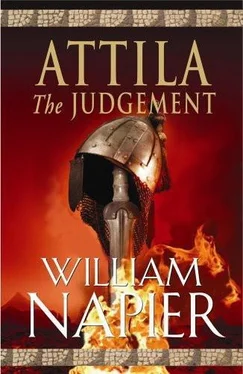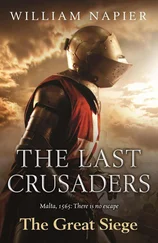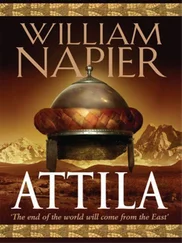William Napier - The Judgement
Здесь есть возможность читать онлайн «William Napier - The Judgement» весь текст электронной книги совершенно бесплатно (целиком полную версию без сокращений). В некоторых случаях можно слушать аудио, скачать через торрент в формате fb2 и присутствует краткое содержание. Жанр: Исторические приключения, на английском языке. Описание произведения, (предисловие) а так же отзывы посетителей доступны на портале библиотеки ЛибКат.
- Название:The Judgement
- Автор:
- Жанр:
- Год:неизвестен
- ISBN:нет данных
- Рейтинг книги:5 / 5. Голосов: 1
-
Избранное:Добавить в избранное
- Отзывы:
-
Ваша оценка:
- 100
- 1
- 2
- 3
- 4
- 5
The Judgement: краткое содержание, описание и аннотация
Предлагаем к чтению аннотацию, описание, краткое содержание или предисловие (зависит от того, что написал сам автор книги «The Judgement»). Если вы не нашли необходимую информацию о книге — напишите в комментариях, мы постараемся отыскать её.
The Judgement — читать онлайн бесплатно полную книгу (весь текст) целиком
Ниже представлен текст книги, разбитый по страницам. Система сохранения места последней прочитанной страницы, позволяет с удобством читать онлайн бесплатно книгу «The Judgement», без необходимости каждый раз заново искать на чём Вы остановились. Поставьте закладку, и сможете в любой момент перейти на страницу, на которой закончили чтение.
Интервал:
Закладка:
At last the two great opposing armies faced each other in the Catalaunian Fields. Dawn broke slowly on that mist-shrouded day, and as soon it broke a shape was seen looming up on the Huns’ right, the Romans’ left. In the moonless, misty night, neither army had seen it as they drew up their lines and committed themselves to battle. Yet this could change everything. It was a hill. A solitary round-headed hill, maybe a couple of hundred feet above the plain, lightly scattered with beeches. It commanded the entire field. And it was nearer to the Hun lines than the Roman.
No sooner did the dark green bulk of the hill loom out of the thinning mist, the sun itself not visible yet, than horsemen from each side were galloping for it. From the Hunnish lines came a stream of warriors on shaggy ponies, bristling with spears and without formation. On the Roman side, Prince Torismond vaulted onto his horse bareback, seized his spear from where it stuck butt-first in the soft ground, and led his wolf-lords racing across the wet grass for the slopes.
Aetius circled his bare sword in the air and ordered his Augustan Horse round the side of the hill to hit the oncoming Huns in the flank. They rode off at all speed, their horses stretched out, ears flat and nostrils flared in a furious gallop, but it was clear that they wouldn’t make it. The Huns were already streaming up their side of the hill towards the tree-crowned summit. As the Roman cavalrymen neared the enemy lines, not one of them having had time to don helmet or cuirass, the Hun arrow-storm hit them and took a terrible toll. Aetius instantly called them back.
Both sides tensed and waited. Somewhere away to his right, Aetius heard old Theodoric bellowing at his armourer, but it would all be decided by the time he was done.
Mist still shrouded the summit of the hill. There came the sound of horses’ hooves galloping in soft turf and beechleaves, and the muffled cries of men.
Prince Torismond did not hesitate for a moment, though he had neither saddle nor armour, not even a sword, only that long ashwood spear. Grief for his sister still drove him. His forty or fifty wolf-lords were similarly light on armaments. So were their enemies, but the Huns had gained the summit and were aiming their first volley of arrows at the hated Visigothic horsemen galloping arduously uphill over wet ground towards them. Yet the timing was wrong. Some of the Huns managed to let fly, and inevitably found targets at such close range, but so ferocious and unflinching was the charge of the big horsemen that in the next instant they crashed into the Huns and sent them reeling.
Beside Torismond rode the huge Jormunreik, showing his true mettle by revealing at this late stage that he had had no time to bring any weapon at all – his burning loyalty to his prince had been everything. There was no time for consideration, and so he had galloped uphill against the Huns entirely unarmed. As his big grey mare erupted between two startled Hun archers, the best he could offer was huge back-handed swipe of his fist which sent one spinning off his pony to the ground. The next instant he had snatched the bow from the other’s hands, and lashed him across the face with it, blinding him. Then he wrapped his forearm round the Hun’s neck and broke it. He pulled the dead Hun from his pony like a thing stuffed with straw and tossed him to the leaf-strewn ground, snatching the Hun’s ten-inch yatagan from his leather belt as he did so. With this as his only weapon, he fought on.
Near Jormunreik, similarly disadvantaged by his own haste, Valamir was wielding a huge fallen tree-branch for a weapon, swiping startled Huns from their ponies to the ground and then leaning over and stoving in their skulls.
The violence and unexpectedness of the wolf-lords’ onslaught was such that the Huns were already being pushed back in disarray from the hilltop.
There came the stir of a breeze and a sliver of sunlight across the fields, and then out of the wind-thinned mist on the hill, figures came tumbling back down the slopes on the Hunnish side. Ponies rolled over and over, warriors staggered with their own arrows plucked from their quivers and driven through their torc-decorated throats. The mist thinned further, and it was a rout. The Visigoths’ white horses reared up against the eastern sunlight, snorting, magnificent, triumphant, swords circling overhead and flashing silver in the morning air, and the Hunnish archers broke and fled.
‘Palatine Guard, second cohort!’ roared Aetius. ‘Consolidate the position on that hill! Improvise brakes, trenches, whatever it takes. That hill is ours and it stays ours. Move it! You’ve got about five minutes before the shooting starts.’
The black-armoured Palatine Guard ran as swiftly as four hundred Achilles over the wet fields to the hill and up, while the wolf-lords drove the dispossessed Huns all the way back to their own jeering lines.
‘Call them back, Sire!’ Aetius galloped over to King Theodoric, who was by now firmly seated on what looked like an eighteen-hand ploughhorse, in a huge and elaborate carved and painted wooden saddle with solid gold finials, thoroughly enjoying the grandstand view of his wolf-lords’ heroics.
‘Your Majesty, call them back! The Hun archers will kill them all when they come in range.’
‘Nonsense,’ bawled Theodoric. ‘Let them have their glory. My son Torismond is a fine lad, is he not?’
Aetius could hardly bear to look. Yet even though they rode as near as eighty or seventy yards to the Hun lines, the wolf-lords took not a single hit, veering away well after the last moment and galloping back round the hill towards their own lines. They returned to festive cheering as if they were all at an afternoon of the games and their chariot team had just won. King Theodoric’s voice sounded most loudly of all, as he cuffed his boy jovially round the head.
Now the dispositions of the two opposing armies were clear.
Attila had concentrated his own warriors in the centre, with the Kutrigur Huns to his right, their flank protected by a lesser river, and other peoples to the left and behind. At least a mile back or more were his baggage wagons and the non-combatants; for the women and children had followed even here to spectate at this great day in the People’s history.
Aetius’ dispositions were more complex. He had placed Sangiban and his three thousand Alans at the centre – as promised. They were dismounted, their long lances set in the ground like pikes. Behind them were ranged his best field-army legions, the Herculians, Batavians and Cornuti Seniores, and held in deep reserve were the remaining cohorts of the Palatine Guard. On the left wing he had his Augustan Horse, themselves saved from outflanking by the presence of the hill, along with the last few centuries of the frontier legions, excepting only the XII Fulminata, the Lightning Boys. Them Aetius had despatched up to the hill to dig in their sling-machines and arrow-firers behind the fierce ranks of staves and trenches that the Palatine Guard would already have established. Only lightweight field artillery, but very effective from that commanding height.
On the far right of the Roman field was the great, fifteen-thousand-strong wing of the Visigothic nation. Among the many brightly coloured pennants decorated with Christian symbols could still glimpsed the occasional likeness of a raven: Odin’s bird. Before them lay all the space of the desolate plain in which to arc out wide and scythe into the vast war machine opposite. They had already identified the banners of the Black Boar: the Vandals.
Theodoric nodded gravely, gazing across at those fated ensigns from under his bushy white brows. ‘So let it be, for weal or woe,’ he rumbled. ‘Let us have one afternoon of righteous happiness, before our long evening-time of sorrow.’
Читать дальшеИнтервал:
Закладка:
Похожие книги на «The Judgement»
Представляем Вашему вниманию похожие книги на «The Judgement» списком для выбора. Мы отобрали схожую по названию и смыслу литературу в надежде предоставить читателям больше вариантов отыскать новые, интересные, ещё непрочитанные произведения.
Обсуждение, отзывы о книге «The Judgement» и просто собственные мнения читателей. Оставьте ваши комментарии, напишите, что Вы думаете о произведении, его смысле или главных героях. Укажите что конкретно понравилось, а что нет, и почему Вы так считаете.












